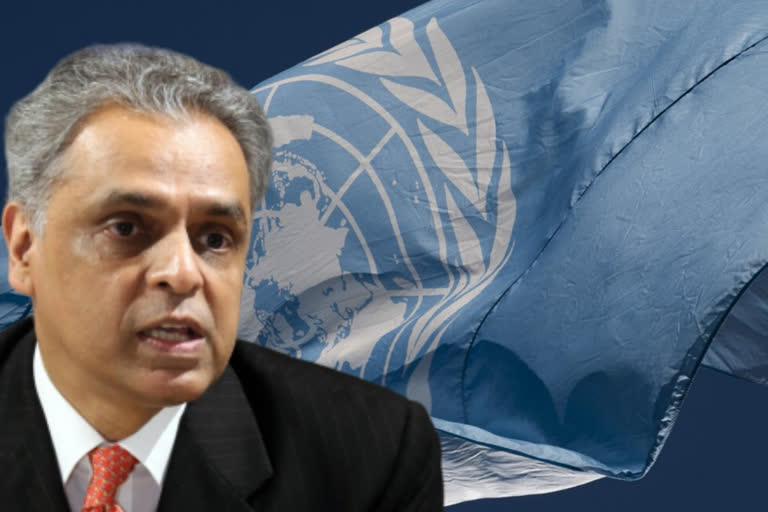United Nations: India has criticised the negotiation process for Security Council reform saying that it's violating the fundamental rules of multilateral negotiations by failing to adopt a basic document for it and thereby making it a Sisyphian endeavour.
There was "an unwillingness to follow basic ground rules of multilateral processes" that required a negotiating text, India's Permanent Representative Syed Akbaruddin told the General Assembly here on Monday.
During a debate on Security Council reform, he said, "The absence of a negotiating text goes against the explicit mandate given to us by our leaders in their 2005 call for early reform of the Security Council."
Uniting for Consensus (UfC), a small group of 12 countries led by Italy and which includes Pakistan, has worked to prevent the adoption of a negotiating text claiming there should be a consensus before it can be adopted. But without a text that sets the items for negotiations, it can't make progress towards a consensus.
Akbaruddin warned that continuing with an "obsolescent global governance structure" based on the global scenario from decades ago couldn't address the challenges of the 21st century as it was "lacking legitimacy and accountability".
"More than ten years after the start of inter-governmental negotiations (IGN), the process we have is still not a normal UN negotiating process," he said.
He, along with several envoys, called for adoption of a negotiating document that would be the basis of conducting negotiations. "We seek a structured format of a single document that can be negotiated, one issue at a time," he said.
A normal UN process starts with an initial sharing of views, which is followed by the adoption of a written document that would be the basis for give-&-take negotiations through attributed additions, deletions or amendments.
Without a negotiating text, "the discussions have been restricted to making repeated statements of known positions, without any genuine effort to narrow differences," he said. "This goes against the essence of multilateral diplomacy," he remarked.
The negotiation process had become like the fate of the tragic character in Greek mythology who was condemned by the gods to roll an immense boulder to a hilltop, only to have it roll down and repeat it endlessly, Akbaruddin said.
He also pointed to the wide support for reforms, including the expansion of the permanent membership of the Security Council.
The 55-member African Union, the L. 69 group with 42 members from developing countries, the 22-member Arab Group, the five-member Nordic Group, and G4 made up of India, Brazil, Germany and Japan, besides several of other countries, have supported expanding the permanent membership of the Security Council.
